Report in pictures
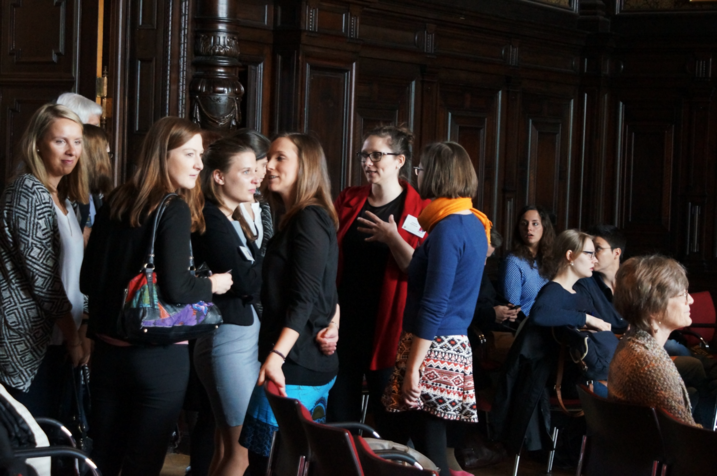
The senate room of the University of Vienna provided the ambience for the international workshop organized by the Department of Developmental Psychology. The aim of the workshop was to present the first research insights gained through two field trips into the savannah in Zomba/Malawi (from left to right: Stefanie Katherl, Natalie Sharp, Andrea Poppe, Melanie Leidwein, Sabrina Leodolter and Anna Theissing, who participated in the field trips).
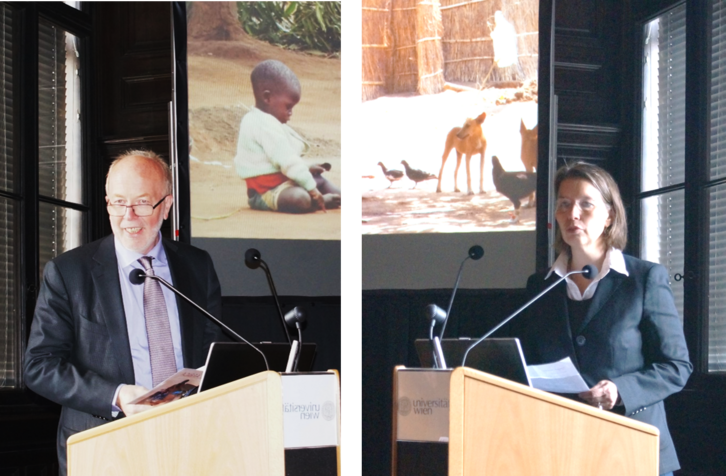
Germain Weber, dean of the Faculty of Psychology, highlighted the big challenges faced by the students who undauntedly investigated a controversial topic, questioning the concept of mother exclusive care-taking. Lottelis Moser (head of the international office of the University of Vienna) praised the support for early research careers conducted innovatively by the Faculty of Psychology.
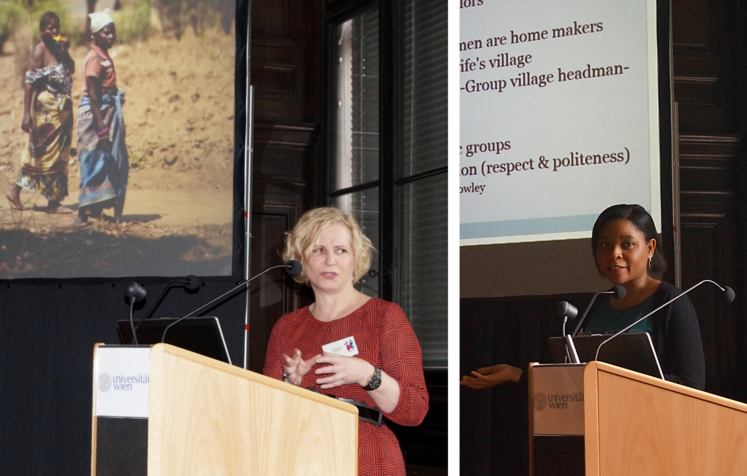
During the first key topic „Cross-cultural approaches to child care“, Limbika Maliwichi-Senganimalunje (University of Zomba/Malawi) characterized the culture and the tertiary education conditions of her motherland. The initiator of the field trips in Malawi, Lieselotte Ahnert (University of Vienna/Austria), reported on how the organizational and conceptual preparations were carried out, and how the research methods were adjusted from the very beginning to make cross-cultural analyses possible afterwards.
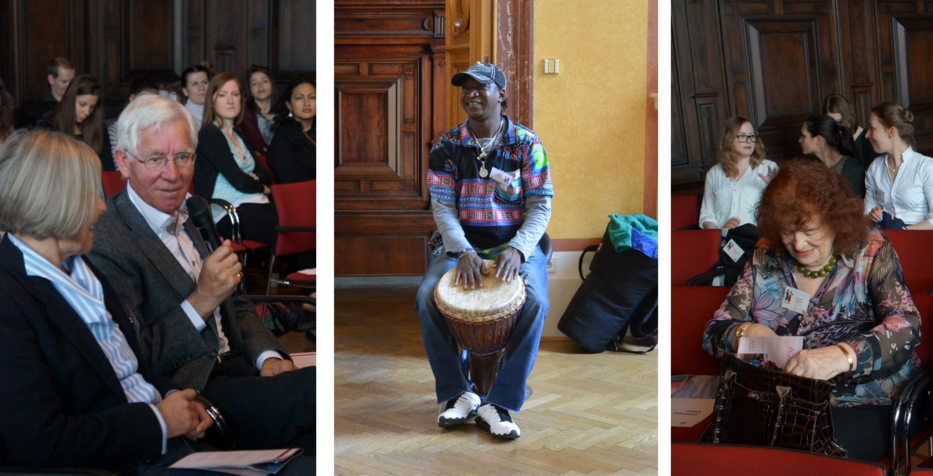
One of the many special features was Lamine Camara who not only opened the symposia festively, but also announced the commencement of the breaks with his African drumming. All participants and invited guests (from left to right: Beate Minsel, Andreas Krapp (University of Munich/Germany) and Brigitte Rollett (University of Vienna/Austria)) welcomed these breaks gratefully.
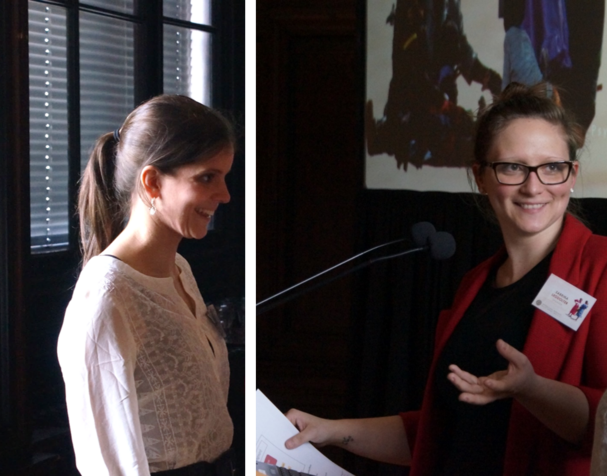
Hanna Luttenberger (left) and Sabrina Leodolter (right) presented the everyday life circumstances of Malawian toddlers in the second key topic „Interaction and closeness in child development“. These toddlers receive either shared or exclusive attention of their caregivers, depending on whether they grow up in a mother-centered (matrilinear) or father-centered (patrilinear) caregiver network.
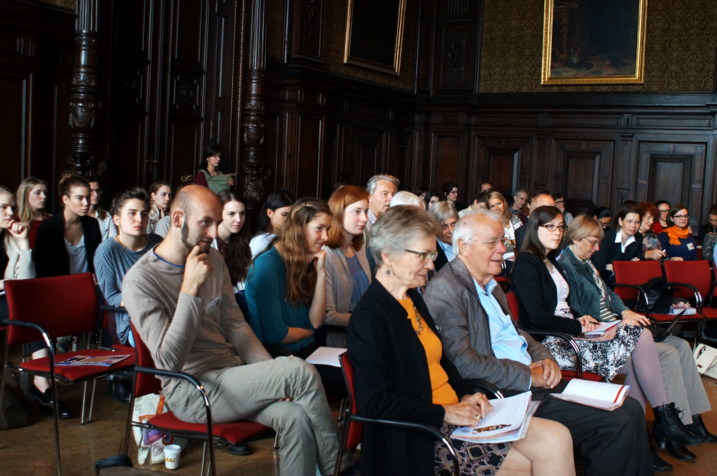
The excellent presentations impressed the audience (first row: Karin and Klaus Grossmann (University of Regensburg/Germany)), who then reported extensively from their own research experiences of studies carried out in Trobriand, as well as South Africa, Colombia and Peru as a sign of honor.
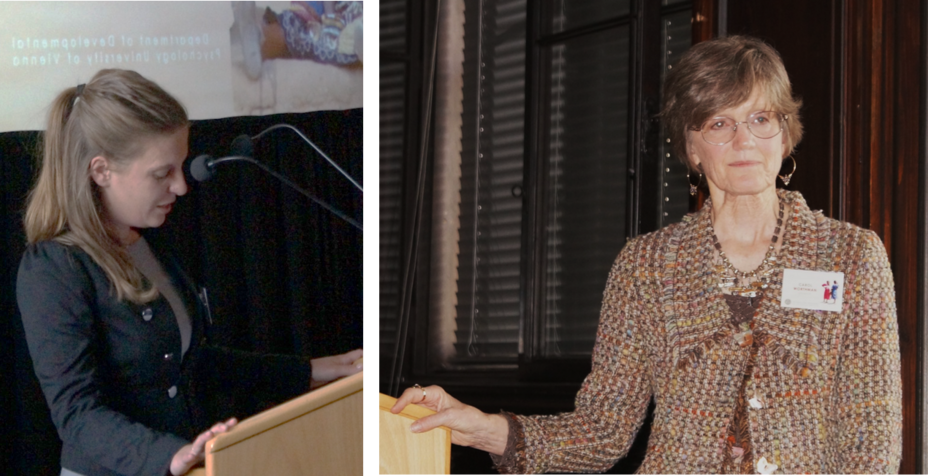
In the third key topic “Maternal beliefs in child development”, Andrea Poppe outlined the importance of maternal views on upbringing for toddlers in Malawi, showing that the maternal aim of integrating the child in the village society serves as first priority. Carol Worthman (Emory University/USA) highlighted interviews carried out with mothers in South Africa, which revealed that parenting influences on the child only become apparent during puberty.
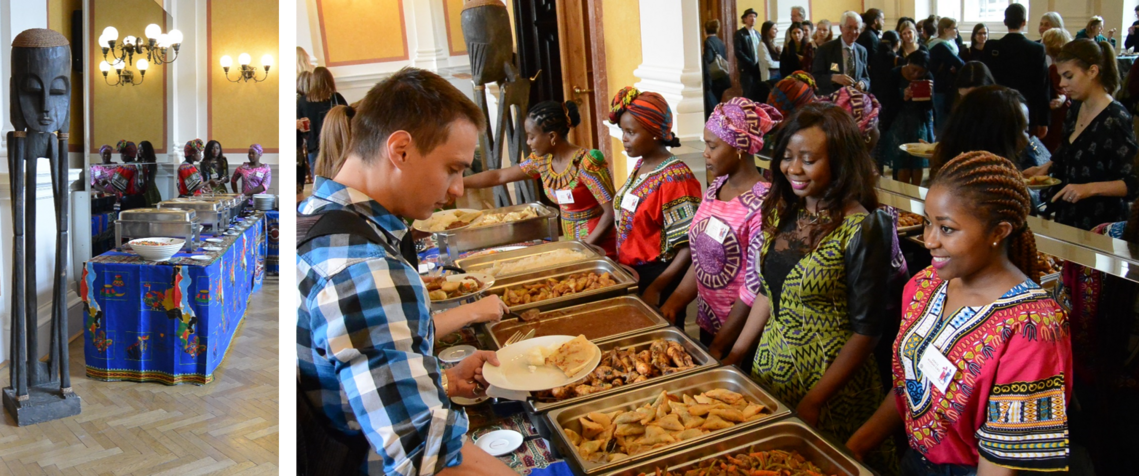
In the meantime, a lunch buffet restored the energy needed for the commencement of the demanding topics. The first-class East African food was made by Grace Mungai, Dyna Malamusi, Zainab Tiamiyu, Isabell Kamau and Grace Mosha (picture on the right; from right to left) and was served on desks (picture on the left) that were decorated with traditional African fabrics (Chitenjes).
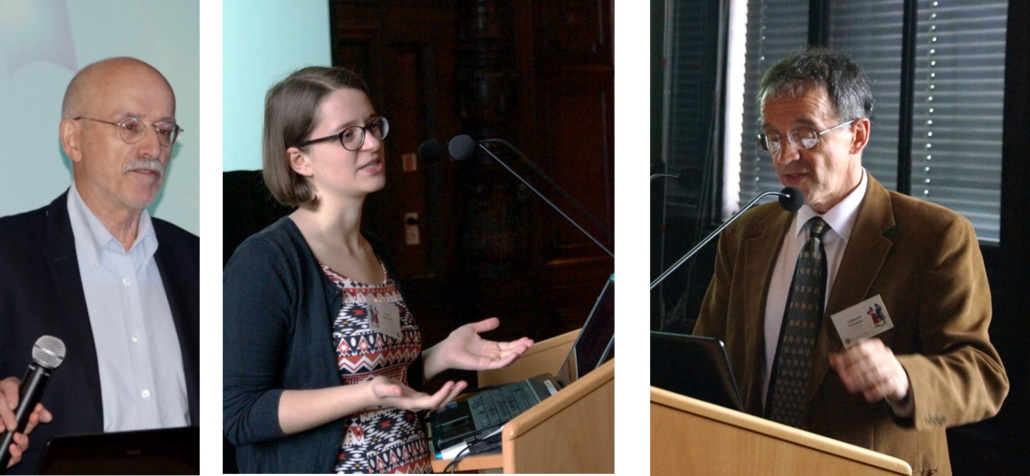
Harald Euler (University of Kassel/Germany, left) opened the fourth key topic „Secure base and maternal sensitivity“, as he visited the team in Malawi and gained impressions of the living conditions on site. Anna Theissing (middle) and German Posada (Purdue University/USA, right) explained the universal mechanisms of the secure base concepts of the mother-child attachment as they are represented when compared cross-culturally, and also how they can be found in Malawi.
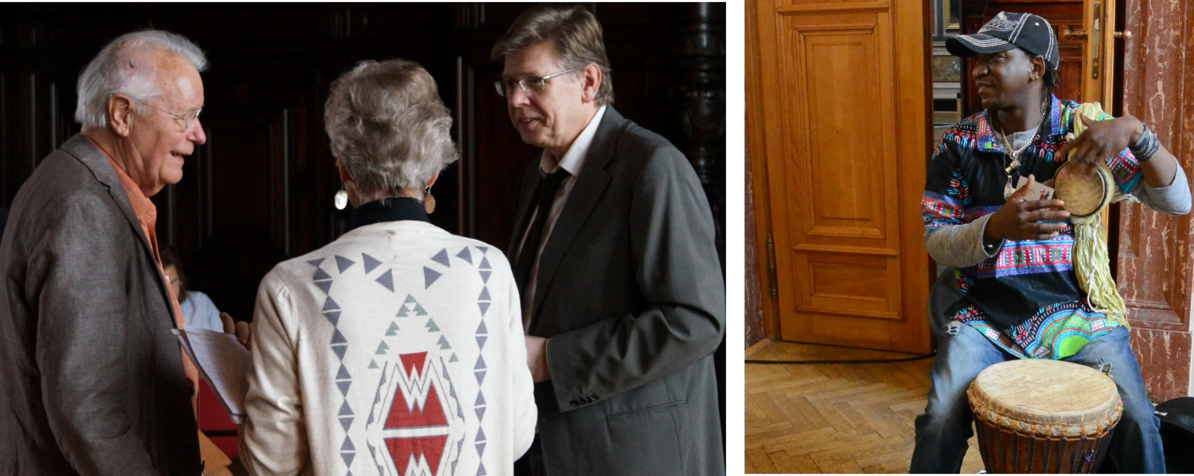
Again, Lamine Camara enticed our guests to the next break (picture showing Klaus and Karin Grossmann discussing with Wilfried Datler from the Department of Education of the University of Vienna), where our cooks presented the African food and provided information about the outstanding meals that were made.
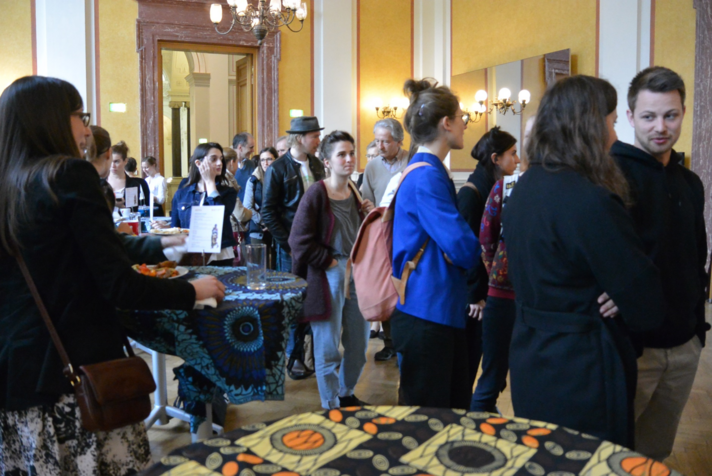
The favorites from the lunch buffet were Ntchafu za nkhunku (spicy grilled chicken thigh) and Nyama ya Ng’ombe (beef with vegetables and African spices), Samosa wa masamba (turnovers with vegetables) as well as Nyemba (red beans). In the afternoon, the guests favored the different variations of Mandasis (fried African pastries).
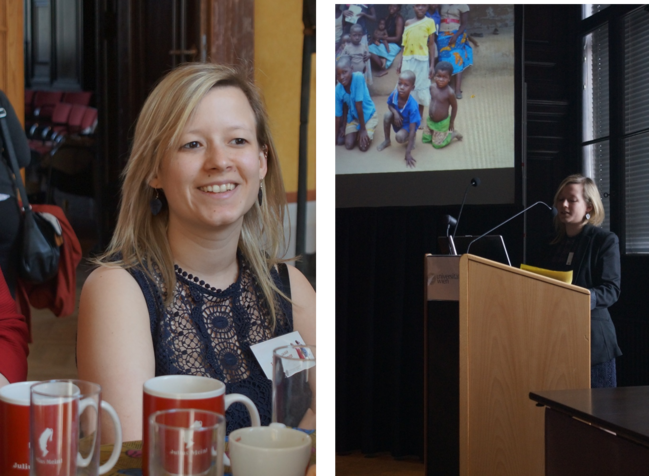
The participants learned about the caregiving engagement of the Malawian mothers within the scope of the fifth key topic „Parental investments and parent-child attachment”, which was presented by Sarah Salmhofer, who was also responsible for the whole organization of the workshop. Although the mothers received plenty of support from their caregiving helpers (mostly grandmothers and other relatives, but also brothers and sisters), the relationship to their children was influenced in a more positive way.
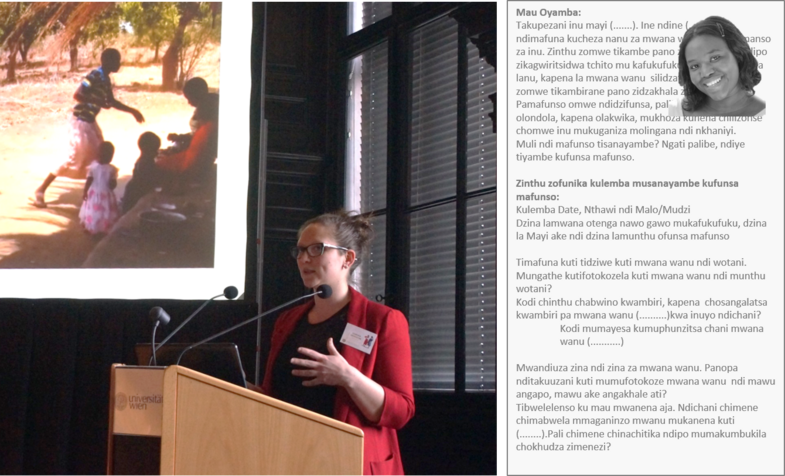
Next, Sabrina Leodolter (left) spoke about the quality of mother-child attachment in different family networks. Unfortunately, Monika Malamusi (right) needed to stay in the background, as her son became ill. She was responsible for the translation of the many protocols and interviews from Chichewa into German.
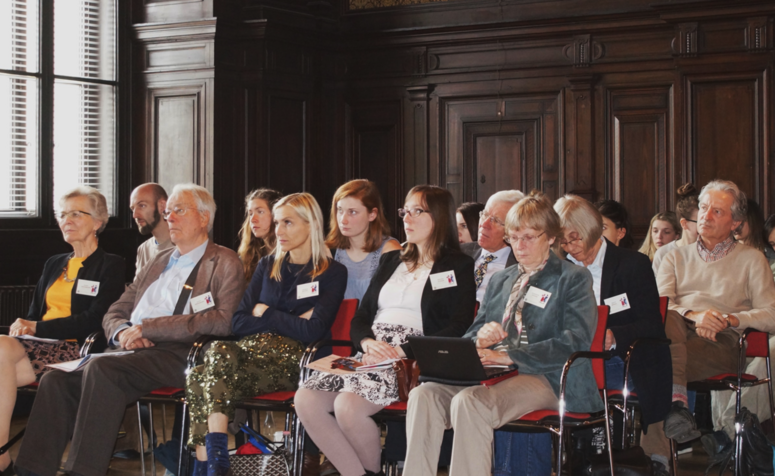
All participants of the international workshops seemed highly attentive. Some of the presented results confirmed already publicized findings from comparable countries of the world and therefore led to silent consent and contemplation. Other results were surprisingly new and provoked questions and contradictions.
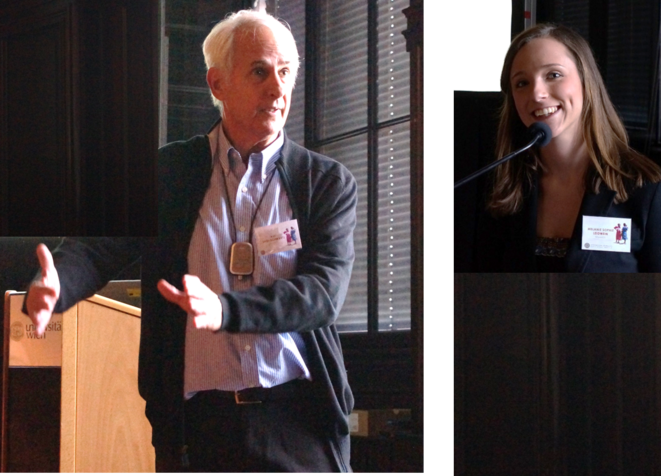
In the last key topic „Multiple attachments in childcare“, multiple caregiving conditions in Malawi were discussed by Melanie Leidwein (right) and in the Israeli kibbutz by Avi Sagi-Schwartz (University of Haifa/Isreal) in a new way and compared to the present conditions in Europe. The debate led to a social-political discussion about the advantages and disadvantages of the out-of-home caregiving offers provided in European countries.
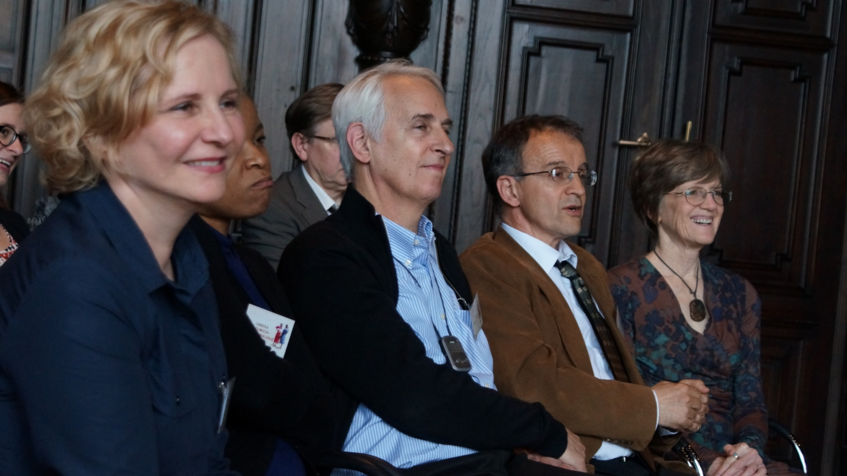
The workshop left all scientists, the speakers as well as the commentators, of the cross-cultural child research in an inspired mood (left to right: Lieselotte Ahnert, Avi Sagi-Schwartz, German Posada and Carol Worthman), which led to the continuation of the debates within the scope of the “Meet the Scientist” happenings in the evening.
